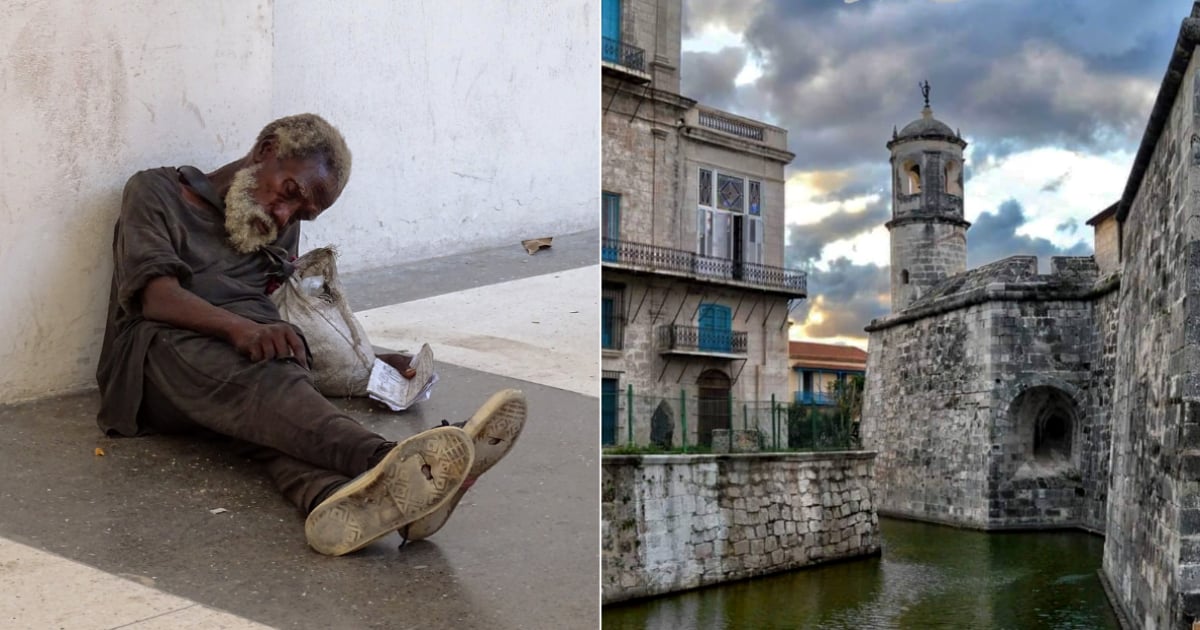Havana is celebrating its 505th anniversary amidst a severe crisis impacting the daily lives of its residents. The city grapples with prolonged power outages, collapsing buildings, accumulating garbage, water shortages, and deficiencies in essential services, casting a shadow over the festivities of this historic city.
Endless Power Outages Plague Havana's Residents
Persistent power cuts have become a routine part of life for those living in Havana. Recently, the Electrical Union (UNE) announced a shortfall in power generation exceeding 1,500 MW, resulting in outages that last more than 12 hours daily in some districts. These outages not only leave the city in darkness but also disrupt crucial services like water supply and telecommunications.
Neighborhoods such as Boyeros and Centro Habana have witnessed protests, as residents take to the streets demanding solutions. In October, a complete blackout caused by the collapse of the national power grid led to several nights without electricity, sparking demonstrations in Havana and other provinces, highlighting the growing public frustration.
Buildings Crumble Under the Weight of Time and Storms
The dilapidation of Havana's infrastructure is another glaring aspect of the crisis. Many structures, especially in Centro Habana and Old Havana, are in a state of ruin, endangering the lives of their inhabitants. This year, a collapse on Obispo Street left several families homeless, underscoring the risks faced by residents of uninhabitable buildings.
Adding to these longstanding issues, Cyclone Rafael battered the capital with heavy rains and strong winds. In areas like Diez de Octubre and East Havana, the torrential downpours caused already weakened buildings to collapse, displacing dozens of families. In Guanabacoa, a partial collapse triggered by the storm trapped two individuals, who were rescued by firefighters after losing all their belongings.
Garbage and Sanitation Crisis
The mounting trash problem in Havana is an escalating concern. Waste piles up on streets and corners, particularly in peripheral neighborhoods like Marianao and Arroyo Naranjo, posing a public health hazard. Improvised dumps, foul smells, and infestations of rodents and cockroaches have become a part of everyday life. Efforts by provincial authorities and leader Miguel Díaz-Canel to address this severe issue have proven unsuccessful.
Recently, in Plaza de la Revolución, residents reported weeks-long garbage accumulation due to irregular collection. Images shared on social media depicted mountains of waste blocking streets, fueling public ire.
Water Shortages and Strained Health Services
Water, an essential resource, is also scarce in many Havana neighborhoods. Water supply disruptions have worsened due to power outages affecting pumping systems and deteriorating hydraulic infrastructure. In areas like Arroyo Naranjo, residents rely on water trucks for supply, facing weeks without access.
In East Havana, the lack of potable water prompted residents to organize and demand solutions. The scarcity impacts not only households but also hospitals and schools, intensifying everyday challenges.
Havana's hospitals, like others across the island, are also struggling. Recent reports highlight a lack of medical supplies, unsanitary conditions, and delays in care. In April, a Cuban doctor warned about illegal abortions conducted in precarious conditions, endangering patients' lives. Additionally, in June, the death of an elderly woman at the "General Freyre de Andrade" Hospital due to medical neglect sparked public outrage.
Food Rationing System Under Strain
In recent months, issues with food distribution through Havana's rationing system have fueled growing discontent. In August 2024, it was reported that residents received their monthly quotas with weeks of delay. This rationing not only affects the availability of essential products but also exposes logistical challenges within the system. Families face long waits for basic foods, increasing frustration with a system that fails to ensure food security and instead exacerbates shortages.
In September, these difficulties persisted. For instance, the size of bread included in the basic basket was reduced, sparking consumer criticism for the declining quality of an essential product. Moreover, Havanans received only pasta packages as part of their assigned quotas that month, inciting anger over the lack of diversity and sufficiency in the products provided.
These situations illustrate a supply system that is increasingly limited and disorganized, leaving the capital's residents facing food insecurity that directly impacts their quality of life.
Fuel Sales and Public Dissatisfaction
Fuel sales in Havana have encountered significant challenges. In March 2024, new fuel prices were introduced, causing confusion and dissatisfaction among drivers. Additionally, issues with point-of-sale (POS) terminals at service stations have hampered transactions, leading to long lines.
The fuel shortage has affected both public and private transportation, increasing mobility costs and complicating daily life for Havanans.
Despite official attempts to promote cultural activities for Havana's 505th anniversary, public dissatisfaction is palpable. On social media and in the streets, many residents express their growing discontent with the city's current state. Story Developing.
